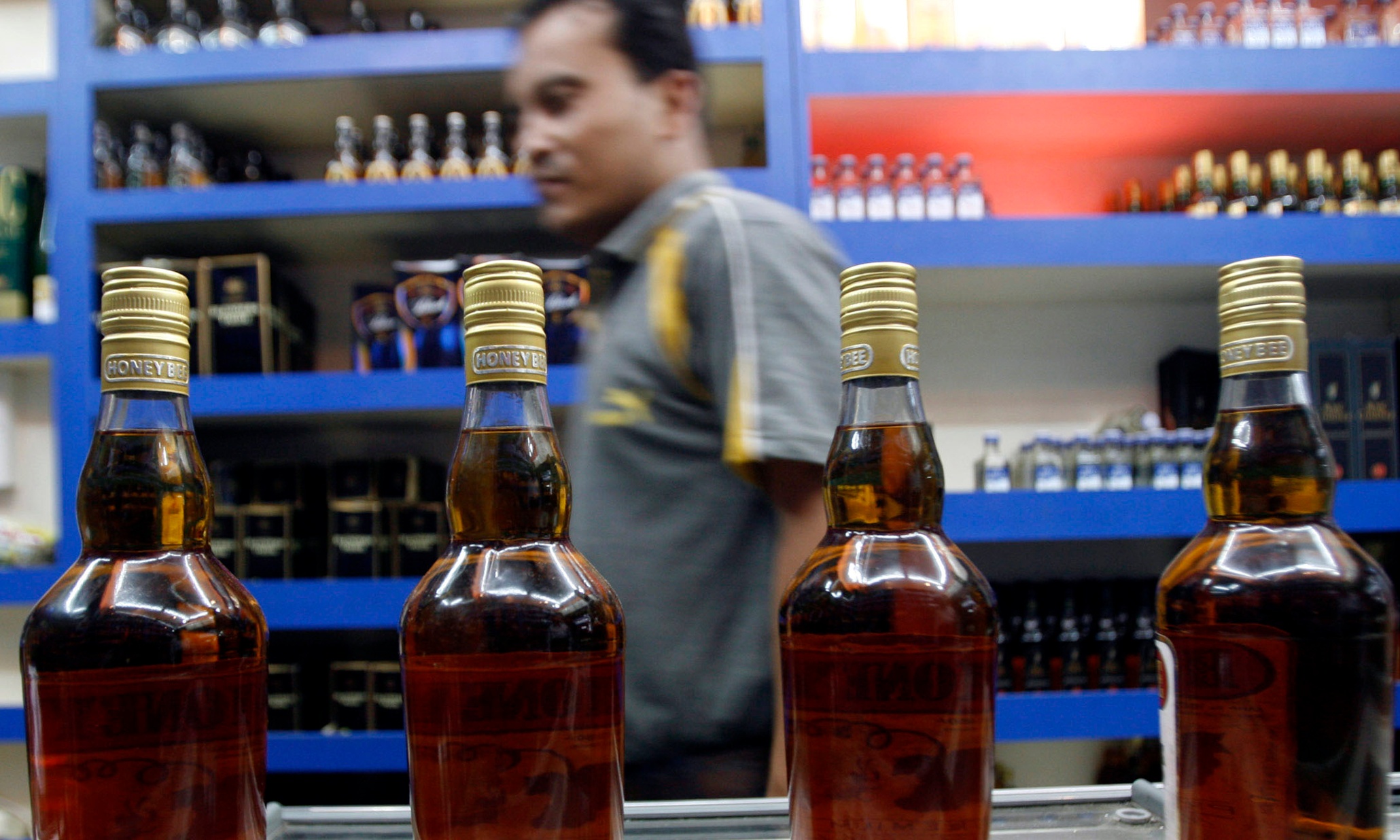
Malayalees and their booze: A queer camaraderie that defies emergencies

The Malayalee and his drink can seldom be parted.
Both during the one-day nationwide shutdown and the subsequent 21-day lockdown on account of increasing cases of Covid-19, many men in Kerala have been trying to somehow get their daily quota of liquor.
Initially, the government refused to close down liquor outlets and toddy shops, with Chief Minister Pinarayi Vijayan saying it would lead to social problems and result in the sale of illicit liquor. Opposition leader Ramesh Chennithala slammed the chief minister for the statement and his Congress Party repeatedly pressed for a total shutdown. So did the Kerala Catholic Bishops’ Council. But Excise Minister T.P. Ramakrishnan said that there was no need to close liquor shops.
It has not helped that WhatsApp has been rife with rumours that consuming liquor provides resistance to the virus.
Bucking calls to contain the spread of the virus by staying apart, the government even went ahead with the auction of toddy shops in five districts on Monday. The auctions were attended by hundreds of bidders, all crammed in a hall. Other auctions were held earlier. But the Youth Congress disrupted these meetings, saying the shops would only promote social interaction and negate the very purpose of a lockdown.
Toddy, freshly extracted from coconut palms and consumed within a few hours, is widely sold across the state. Toddy shops are usually found every three kilometres, just 500 metres off highways as mandated by the Supreme Court. To back his reluctance to shut down liquor shops, Viayan quoted Punjab Chief Minister Amarinder Singh that beverages are essential commodities, forgetting the fact that the word beverage is also used to refer to such things as fruit juice or colas. His stand won him wide support among the drinking public.
During the initial one-day shutdown, liquor shops saw large lines of buyers, who ignored the call for maintaining a distance of six feet between themselves. Doctors were aghast and demanded that the chief minister be more responsible.
Finally, on Wednesday, with great reluctance, Vijayan ordered all liquor outlets of the state-run Beverages Corporation, or Bevco, to close shop. Bars and liquor shops have also been closed across the state.
But that does not deter people from stirring out in search of a drink, even if it means risking their lives. Police have been in full force on the streets, stopping anyone who has no valid reason to be out. The tipplers have been inventing one excuse after another, but the cops have become stricter. When one man said he was trying to buy vegetables, the policeman pointed out that he had already passed numerous shops along the 10-km route from his house.
The Kerala government opened a Facebook page for those who feel miserable because of the lockdown. It was immediately flooded with requests to warn their menfolk against stepping out in search of liquor. Staff supervising the page even made “threatening phone calls” to likely offenders, said P.S.Santhosh, a police officer manning the cell.
On Sunday, police lathicharged a group of 200 tipplers who had gathered in front of a liquor store in the northern town of Vadakara on the border with Karnataka and Mahe. Despite a ban order under section 144, the men tried to get liquor. Newspapers reported that the area is home to a large number of Non-Resident Indians from the Gulf and they insist on their daily tipple.
Liquor sales have been a major source of income for the government. Last year, they fetched the exchequer Rs.14,508 crore, of which the government’s cut through excise duty was about Rs. 2,521 crore. So far, this year, the revenue has touched Rs. 2,609 crore. Bevco and the state-run organisation Consumerfed together operate 301 sales outlets. The state has 398 bars and 357 beer and wine parlours. All of them have now been closed.
However, the state government is trying to sell liquor online. The Abkari Policy does not permit that and so the state government is planning to amend it this week.
Kerala has the highest consumption of alcohol in India, much more than Punjab and Goa combined, with Andhra Pradesh and Telengana combined being a close second. The average Malayalee quaffs 8 litres of liquor a year, against the national average of 5.7 litres.
Some of it is due to the social acceptance of drinking. Toddy tapping has for many decades been a major employer. Every morning, toddy tappers empty out earthen pots tied to coconut palms. The owner of the trees is usually given a bottle or two of the milky liquid. The fresh toddy is an essential ingredient of aappam, spongy rice dosas made in an earthen pan. If the toddy is left to ferment all day, it acquires about 4% alcohol by evening.
The toddy soon morphed into hard liquor, with the involvement of the state government in the liquor business. Nationwide, some 30% of Indians are said to consume alcohol at some point, but in Kerala, it is widely believed to be more than twice that figure.
Yet, Vijayan has been reluctant to ban liquor, as many states in India have done. The reason he gives is that when restrictions on alcohol were introduced in Kerala in 2015, there was an increase in drug abuse.
The state also depends heavily on tourism and the sector successfully lobbied to relax the restrictions in 2017 to allow 2- and 3-star hotels to serve liquor and not just 5-star hotels. Although the government raised the minimum drinking age from 21 to 23, enforcement has been lax and it is a common sight to see even teenagers at liquor shops.
(G. Krishnan has written for national and international publications for 40 years.)

